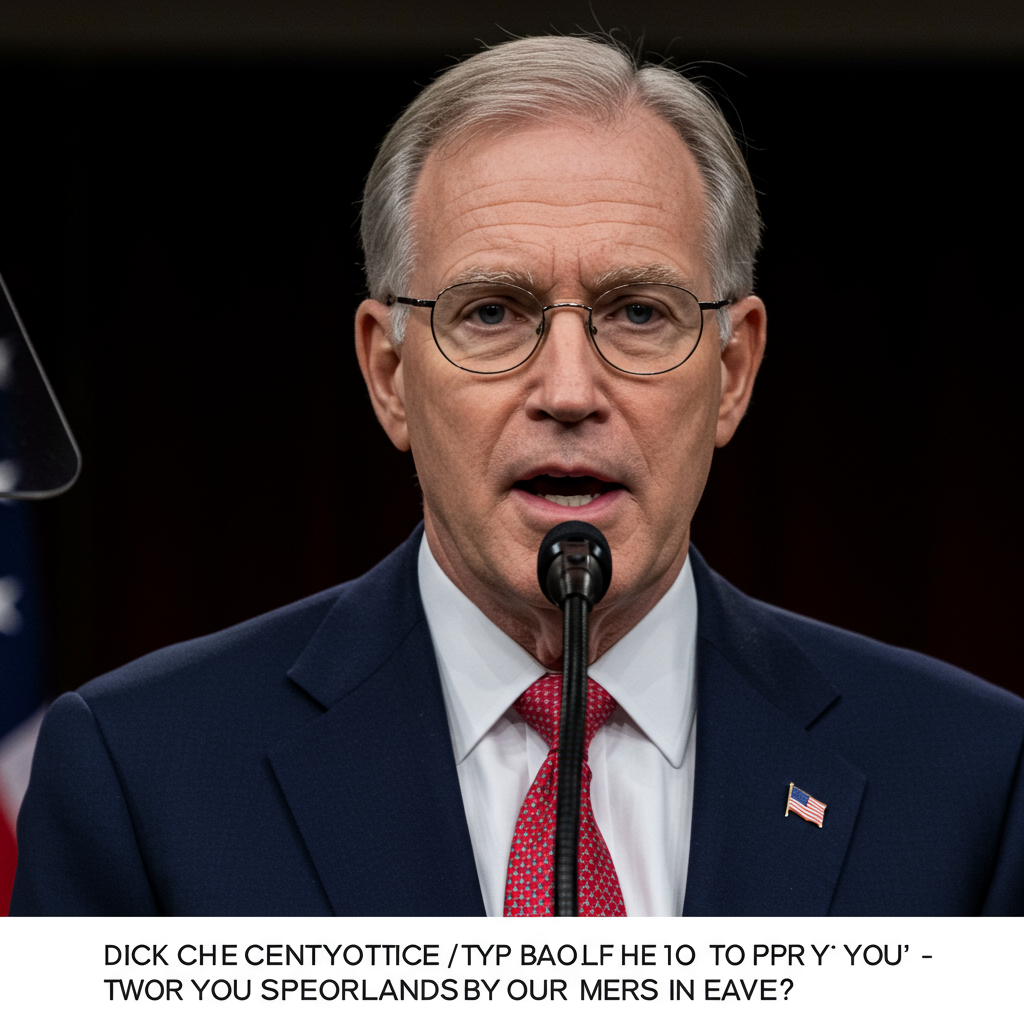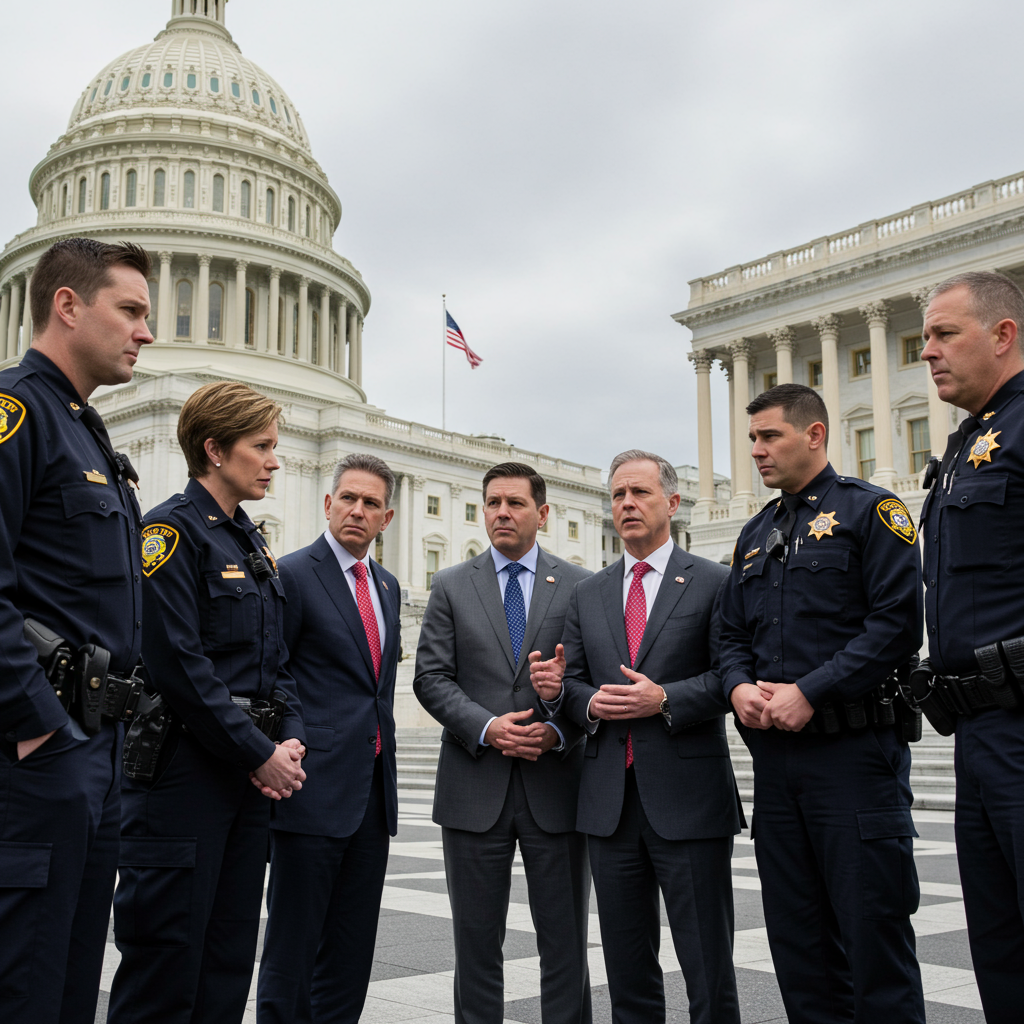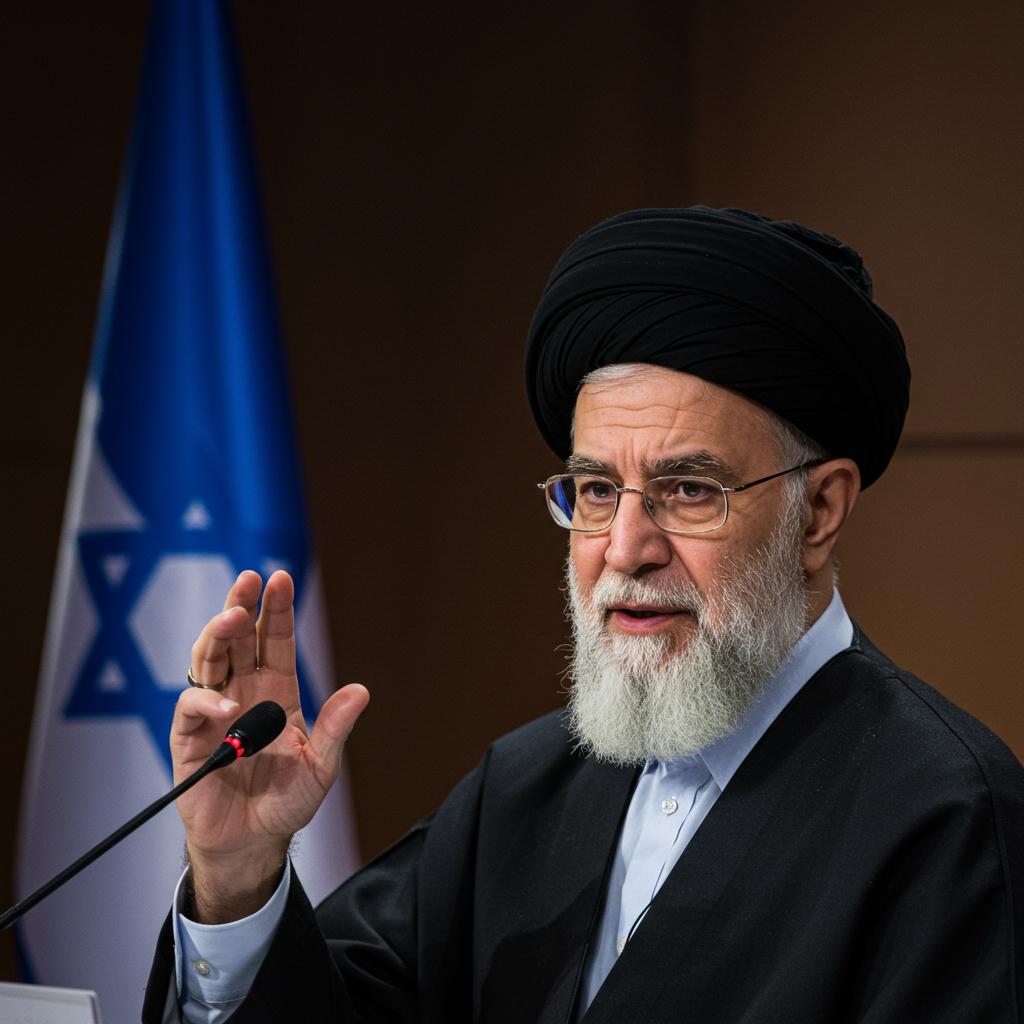The political landscape often sees alliances shift, but few transformations have been as stark and significant as former Vice President Dick Cheney’s journey from endorsing Donald Trump to becoming his most unwavering Republican critic. Cheney, who recently passed away, leaves behind a complex legacy, capped by his profound condemnation of Trump following the January 6, 2021, Capitol attack. This unexpected pivot from a GOP stalwart underscored deep ideological rifts within the party, cementing Cheney’s place as a vocal defender of constitutional principles.
His public statements, often delivered with characteristic bluntness, positioned Trump as an existential “threat to our republic.” This firm stance, shared with his daughter, former Representative Liz Cheney, resonated across the political spectrum, highlighting a fierce battle for the soul of conservative politics. Understanding this powerful political evolution requires delving into Cheney’s own long-standing convictions and the unprecedented events that prompted his decisive break.
The Unprecedented Rift: Cheney’s Critique of Trump
Dick Cheney, a figure synonymous with Republican power and hawkish foreign policy, initially offered a cautious endorsement of Donald Trump in 2016. However, this support completely dissolved after the tumultuous events of the 2020 election and its violent aftermath. The former Vice President, known for his formidable eight years under George W. Bush, viewed Trump’s actions as an assault on American democracy itself.
From Endorsement to Condemnation: A Pivotal Shift
Cheney’s initial endorsement of Trump was a pragmatic nod to party unity. Yet, his commitment to established institutions and constitutional order eventually outweighed any partisan loyalty. The shift was not gradual but rather a direct response to Trump’s persistent claims of a stolen election and his role in inciting the Capitol riot. For Cheney, these actions crossed an unforgivable line, demanding an unequivocal response.
He believed that Trump’s attempts to overturn election results and his rhetoric promoting violence fundamentally undermined the peaceful transfer of power. This was a direct challenge to the very fabric of American governance. Cheney felt compelled to speak out, irrespective of the political cost or the potential for backlash from his own party.
The January 6 Catalyst: Defending the Republic
The January 6, 2021, attack on the U.S. Capitol served as the primary catalyst for Cheney’s outspoken opposition. He saw the pro-Trump mob’s actions, spurred by the former president’s rhetoric, as a direct assault on the democratic process. This event solidified his conviction that Trump represented a grave danger to the nation’s foundational principles.
Cheney declared that Trump had tried to “steal the last election using lies and violence.” He argued that Trump’s actions were an attempt to remain in power after voters had rejected him. This assertion highlighted a deep concern that Trump’s disrespect for electoral outcomes posed a serious and enduring threat to the republic.
“Greatest Threat”: Cheney’s Stark Warning
In one of his most powerful statements, Dick Cheney asserted, “In our nation’s 248-year history, there has never been an individual who is a greater threat to our republic than Donald Trump.” This was not merely political criticism; it was a profound judgment from a seasoned statesman on a former president’s character and intentions. He also famously called Trump a “coward.”
Cheney believed a “real man wouldn’t lie to his supporters” and would accept electoral defeat. His sharp words reflected a conviction that Trump’s post-election behavior demonstrated a fundamental lack of integrity and a disregard for democratic norms. These pronouncements aimed to awaken a sense of national duty above partisan allegiances.
A Family United Against Trump: Liz Cheney’s Role
The Cheneys presented a united front in their opposition to Donald Trump. Dick Cheney’s daughter, Liz Cheney, a former Republican Representative from Wyoming, became an equally prominent and vocal critic. Their shared convictions forged a formidable, albeit isolated, force within the Republican party.
Shared Convictions: Daughter Liz Cheney’s Battle
Liz Cheney, once considered a rising star in the GOP, mirrored her father’s resolve. She too vocally opposed Trump’s efforts to deny the 2020 election results and condemned the January 6 attack. Her prominent role as Vice Chair of the House select committee investigating the Capitol insurrection put her directly in Trump’s crosshairs.
Her work on the committee, investigating Trump’s actions leading up to and on January 6, solidified her status as a leading Republican dissenter. She consistently cast Trump as a threat to democracy, amplifying her father’s warnings. Their coordinated stance underscored a shared belief that constitutional defense transcended party loyalty.
Political Consequences and Enduring Principles
The Cheneys’ opposition to Trump came with significant political consequences, especially for Liz. Despite her strong conservative record, she lost her reelection bid in large part due to her anti-Trump stance. This outcome underscored the former president’s enduring influence within the Republican base.
However, both Cheneys framed their actions as a matter of principle, not political expediency. Dick Cheney praised his daughter’s investigation as the most important work she would ever do. He affirmed her efforts to ensure that Donald Trump “is never again near the Oval Office,” reflecting their deep-seated concerns for the nation’s future.
The 2024 Endorsement: Country Over Party
Perhaps the most striking manifestation of Dick Cheney’s break from Trump was his unprecedented endorsement of a Democratic presidential candidate. This move shattered conventional political norms and sent a powerful message about his priorities.
Backing Kamala Harris: A Republican Anomaly
In 2024, both Dick Cheney and Liz Cheney publicly endorsed Democrat Kamala Harris for president over Donald Trump. This decision was a profound statement, positioning country above long-held partisan affiliations. Cheney explained his choice by emphasizing a citizen’s “duty to put country above partisanship to defend our Constitution.”
This act placed Cheney among a select group of prominent Republicans, including figures like Senator Mitt Romney, who refused to endorse Trump’s return to the presidency. It highlighted the deep fracture within the GOP and provided a powerful counter-narrative to Trump’s pervasive influence among Republicans. Cheney’s endorsement underscored his unwavering commitment to his principles, even if it meant supporting a political opponent.
Trump’s Retort: “Irrelevant RINO” and Legal Threats
Donald Trump responded to the Cheneys’ criticism with his characteristic ferocity. He dismissed Dick Cheney as an “irrelevant RINO” (Republican In Name Only), lumping him together with his daughter. Trump frequently lashed out at his critics, and the Cheneys were no exception.
Trump also repeatedly suggested that members of the House select committee that investigated January 6, including Liz Cheney, should be jailed. These attacks underscored the personal and deeply antagonistic nature of the feud. The former president’s rhetoric often sought to delegitimize his opponents, framing their criticism as disloyalty or political opportunism rather than principled stands.
Beyond Trump: Dick Cheney’s Complex Legacy
Dick Cheney’s political career stretched over five decades, marked by significant influence and considerable controversy. His later criticism of Trump, while pivotal, is just one chapter in a long and impactful public life.
Architect of Power: A Powerful Vice Presidency
As Vice President under George W. Bush, Cheney was widely regarded as one of the most powerful individuals to ever hold the office. He played a central role in shaping national security policy, particularly following the September 11 attacks. Cheney was a driving force behind the Iraq War and advocated for an expansive view of executive power.
His hawkish reputation and assertive approach to policy left an indelible mark on American governance. Before his vice presidency, he served as a Congressman from Wyoming, Secretary of Defense under George H.W. Bush, and White House Chief of Staff for President Gerald Ford. His extensive experience in various high-level roles gave his later criticisms of Trump significant weight and credibility.
Controversies and Public Perception
Cheney’s legacy is also intertwined with various controversies. His staunch defense of controversial surveillance and interrogation methods post-9/11 drew widespread criticism. He also faced scrutiny regarding his prior leadership of Halliburton, an oil company that later became a major contractor in Iraq. Despite these controversies, he was remembered by many, including George W. Bush, as a “patriot” and a “decent, honorable man.”
His life, which included a lifelong battle with heart disease and a heart transplant, was a testament to his resilience. While he was sometimes caricatured as “Darth Vader” by late-night comedians, he remained a formidable figure. His final stand against Donald Trump, even in his declining years, demonstrated an enduring commitment to what he believed were fundamental American values.
Frequently Asked Questions
Why did Dick Cheney become a vocal critic of Donald Trump after initially endorsing him?
Dick Cheney’s initial endorsement of Donald Trump in 2016 gave way to severe criticism following the 2020 election and the January 6, 2021, Capitol attack. Cheney viewed Trump’s attempts to deny election results and his role in inciting violence as an unprecedented threat to American democratic institutions and the Constitution. He stated that Trump tried to “steal the last election using lies and violence,” which prompted his strong condemnation and belief that citizens must prioritize “country above partisanship.”
What was Liz Cheney’s role in the opposition to Donald Trump alongside her father?
Liz Cheney, Dick Cheney’s daughter and a former Republican Representative, played a central role in the opposition to Donald Trump. She served as Vice Chair of the House select committee investigating the January 6 insurrection, actively leading efforts to uncover Trump’s actions. Like her father, she consistently labeled Trump a threat to democracy. Her outspoken criticism, which led to her losing her reelection bid, underscored a united front with her father in defending constitutional principles over party loyalty.
How did Dick Cheney’s political legacy shape his later criticisms of Trump?
Dick Cheney’s extensive political legacy, marked by decades of service and a deep understanding of constitutional power, profoundly shaped his criticisms of Trump. As a powerful Vice President who expanded executive authority, he had a strong conviction about the proper functioning of government and the rule of law. His experience as a “hawkish” Republican who prioritized national security led him to view Trump’s actions as a fundamental breakdown of these essential principles, prompting his declaration that Trump was the greatest “threat to our republic.”
Conclusion
Dick Cheney’s life journey, culminating in his blunt and unwavering criticism of Donald Trump, provides a powerful lens through which to view contemporary American politics. His decision to publicly oppose a sitting president from his own party, even endorsing a Democrat, speaks volumes about his deep-seated commitment to the Constitution and democratic norms. His final stand, alongside his daughter Liz, underscored a profound belief that some principles transcend partisan divides.
As the nation reflects on his significant, often controversial, legacy, Cheney’s actions in his later years will be remembered as a stark reminder of the individual responsibility to defend foundational values. His voice, once a hallmark of Republican power, became an urgent call for accountability and a powerful warning about the fragility of democratic institutions. His passing marks the end of an era, but his final political act—a powerful condemnation of a former president—will undoubtedly continue to resonate.




